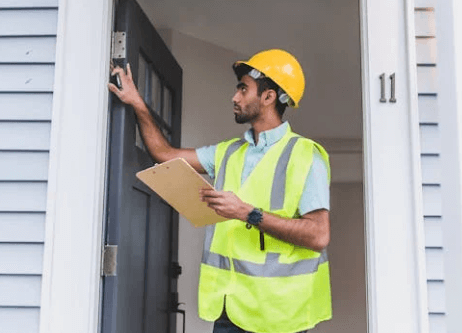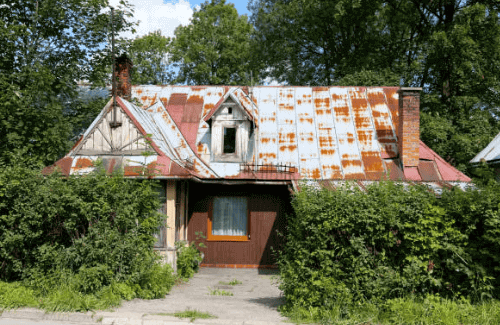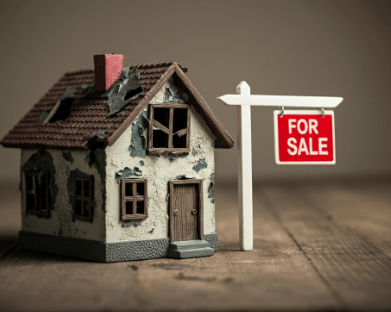Selling a home in Florida comes with unique challenges, notably when the property needs curb appeal. “How to Sell an Ugly House” is a dilemma many homeowners face, but with the right strategies, it’s possible to turn what seems like a disadvantage into a compelling sale. In this blog, we’ll explore ten indispensable tips on how to sell an ugly house in Florida, providing you with practical advice to attract potential buyers and secure a sale. Whether leveraging the property’s location or making cost-effective improvements, each tip is designed to help you successfully navigate the market and present your home in the best possible light.
Steve Daria and Joleigh stand out as seasoned real estate investors known for their expertise in transforming properties, making them ideal candidates for those wondering how to sell an ugly house in Florida. These investors are showing great interest in buying houses for cash, offering a swift and hassle-free sale to owners of properties that might otherwise be considered unattractive. Their approach provides a beacon of hope for sellers seeking practical advice on how to sell an ugly house, ensuring the process is as smooth and profitable as possible.
Understanding the Florida Real Estate Market
Before delving into the strategies on how to sell an ugly house in Florida, it’s crucial to understand that diversity reigns supreme in the Sunshine State’s dynamic real estate market, mirroring its landscape’s eclectic mix of properties.
From the bustling condo scene in Miami to the tranquil beachfront bungalows nestled along the Panhandle, location is crucial in determining property value and demand.
Yet, amidst this kaleidoscope of options, Florida’s market welcomes a steady stream of buyers seeking renovation projects, income-generating rental properties, or affordable housing solutions.

Even “ugly” houses discover their niche in this ever-evolving real estate panorama. But in a sea of listings, how do you ensure that your property stands out for all the right reasons?
The answer lies in strategic positioning and presentation. While location undoubtedly influences desirability, the potential of an “ugly” house lies not just in its physical attributes but also in its untapped potential.
By reframing perceived flaws as opportunities for customization or investment, you can attract more buyers eager to transform your property into their dream home or lucrative project.
Recognizing What Makes a House ‘Ugly’
The term “ugly” is subjective in the context of real estate. It can denote many issues, from superficial aesthetic problems like peeling paint to more severe structural concerns like a leaking roof.
For this post, an “ugly” house requires significant maintenance, has outdated or awkward features, or is in disrepair, significantly impacting its worth.
10 Tips on How to Sell an Ugly House
Selling a house that lacks curb appeal in Florida presents unique challenges, yet it’s entirely feasible with the right approach.
This section will explore ten practical tips to enhance your property’s attractiveness to buyers, ensuring a successful sale despite its initial appearance.
1. Conduct a Thorough Assessment
Before addressing the horror, you must know what you’re working with. Start by critically examining every aspect of your property’s interior and exterior.
Assess each room for signs of damage or wear, and evaluate your property’s curb appeal.
If you need help figuring out where to begin, consider hiring a professional home inspector to provide a detailed report on the house’s condition.
2. Devising a Budget and Plan
Once you know the extent of the necessary work, it’s time to create a budget. Be stringent and allocate funds to areas with the most significant impact first.
Consider cosmetic upgrades like fresh paint and landscaping and essential fixes like a new roof or HVAC system. A detailed plan will keep you on track and provide a clear vision for potential buyers.
3. Prioritizing Repairs and Updates
Not all repairs and updates are equal when selling an ugly house. Concentrate on the defects that could be deal-breakers for buyers, such as plumbing issues, outdated electrical systems, or structural problems.
Updating kitchens and bathrooms can also significantly enhance a property’s appeal.
4. Maximizing Curb Appeal
The first impression of your house is often made before a potential buyer sets foot inside. You want to ensure that the exterior is as inviting as possible.
Landscaping, maintaining the garden, and fresh paint on the front door can transform a home’s exterior.
5. Photographic and Staging Strategies
Regarding marketing, showcasing the best parts of your home is essential.
High-quality, well-lit photographs can make even “ugly” houses appear more attractive online.
Staging can also help present a vision of the home’s potential, which is crucial when competing against more move-in-ready properties.

6. Pricing Considerations
Accurately pricing your home is one of the most crucial factors in selling a fixer-upper. You don’t want to overprice and turn off potential buyers, but you also don’t want to undersell and lose your investment.
To figure out a fair and competitive price, consider the cost of repairs and updates, the neighborhood, and the current real estate market.
7. Marketing to the Right Audience
Your marketing efforts should be tailored to reach buyers who see potential in a property like yours.
Utilize channels that cater to investors, flippers, and bargain hunters, such as real estate auctions, online listings, and local networking events.
8. Showcasing Potential
Highlight the potential of your property in every aspect of your marketing. Mention the durability of the home’s materials, the spacious layout, or the architectural features that a buyer could restore or personalize.
9. Be Transparent About the Ugliness
Honesty is the best policy in real estate transactions. Be upfront about the condition of your house in all communications. This approach establishes trust with buyers and reduces deal-cancellation risks.
10. Negotiation Strategies
Expect buyers to want to negotiate the price, especially if your property needs work. Be ready to provide valid reasons for your asking price by pointing out the neighborhood’s value, the potential for property appreciation, or the quality of life offered by the area.
Selling an ugly house can test patience and perseverance, but it’s not an impossible challenge. In order to achieve a successful and profitable sale, it is crucial to follow the tips we have provided. Navigating Florida’s real estate market is a rollercoaster of highs and lows, but with the right approach, even the most unattractive properties can find their place in the sun. Whether you’re a first-time home seller or a seasoned property owner, understanding the market, revitalizing your property’s appeal, and being strategic in your sales approach can turn your “ugly” house into a beautiful transaction. Remember, the potential of your property is just as significant as what it currently is—so showcase it with pride, price it wisely, and attract the perfect new owner to bring out its inner beauty.

